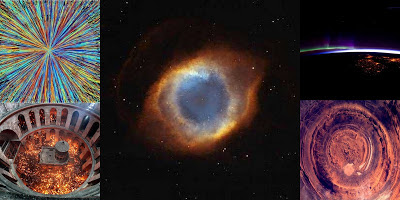https://youtu.be/Qwl3ASGRY90
Translation from Russian
from Быть с Богом. [Being with God]
Once upon a time, now it already seems like a [rather] long time ago, I strenuously wished to understand – to comprehend what is the difference between the angelic admonition and demonic temptations; in what way(s) does the angelic voice in the soul differ from the demonic "speech". Ignorance gave me an almost physical pain, but in its own way it was even more profound than that [in comparison]. Long time I was at pains to comprehend with my mind, although calling upon God to help me to – all attempts were in vain... But the answer to that came to me just now in its extreme [extraordinary] simplicity – and it turned out that to confuse it was almost impossible; however, I was even able to learn what the only danger in the knowledge of the mysterious world of the spiritual is, and that danger may find expression in self-glorification, in ascribing to oneself some [sort of] super-significance, (self-) merit, "mysterious election" and other spiritless untrue nonsense of the sort, indicating only the soul’s unpreparedness for the knowledge of the supreme values of the spiritual world, namely (and not just [that world] – of the invisible [one], too).
I should nevertheless note that from this side [point of view] – those who are unprepared for the revelation [discovery] of the knowledge, which I am narrating about here – those who would want to know what it was all about, would be left disappointed – so boring and non-entertaining will this new knowledge seem: exactly like a new lesson in fed-up mathematics at school, so I have to immediately protect them from further reading [on]. As for the rest, I should also note that the appearance [manifestation] of the Lord is not always in signs and wonders, with thunder and lightning, but – at first glance – in the very simplest of things, and in such common changes in the world, which no one can ever suspect of being something supernatural; yes, in this conceited life routine – His presence seems at times incredible, but it is nonetheless there. This is especially [well] known, for example, to those who read, not just once a year, the Holy Gospel, or to those who go to the temple of God as to a Church, and not as to a theater, a cinema, or a shop.
Also, one should realize [imagine] that leading a Christian life is by far not always a holiday, but is quite often hard and painful labor, during which there arise both gloom and despair, that may be overcome through the Divine participation alone (always so much invisible...) in life, and this labor – when quite often the outcome is invisible behind a gray veil – and even behind the so well known darkness; and the labor itself seems hopeless in this modern [state of] lack of education; and this labor, though, must be carried out – at that not in any other way but with love [charity], at that [note], there is no sense to do it in any other way: as it will then not be Christianity. But, there [we are], where is one to source those powers from? – he who prays asks himself unwittingly and begs such powers from God – from That One about Whom he guesses, but Whom he cannot see.
Also, one should realize [imagine] that leading a Christian life is by far not always a holiday, but is quite often hard and painful labor, during which there arise both gloom and despair, that may be overcome through the Divine participation alone (always so much invisible...) in life, and this labor – when quite often the outcome is invisible behind a gray veil – and even behind the so well known darkness; and the labor itself seems hopeless in this modern [state of] lack of education; and this labor, though, must be carried out – at that not in any other way but with love [charity], at that [note], there is no sense to do it in any other way: as it will then not be Christianity. But, there [we are], where is one to source those powers from? – he who prays asks himself unwittingly and begs such powers from God – from That One about Whom he guesses, but Whom he cannot see.






